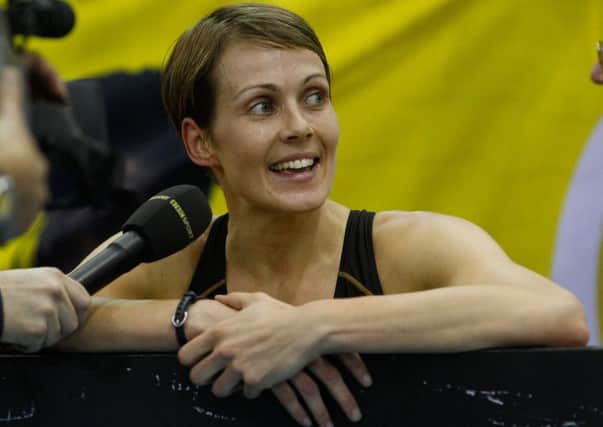I missed drug tests but have nothing to hide says GB Olympian Sotherton


Sotherton, speaking following last week’s revelations that Mo Farah was a missed test away from a lengthy ban in the year before the London 2012 Olympics, said there should be more transparency surrounding missed tests.
Under UK Anti-Doping rules, athletes must provide their whereabouts for an hour a day, every day. If they are not available for testers three times within the space of a year that constitutes a doping offence.
Advertisement
Hide AdAdvertisement
Hide AdCyclist Chris Froome has also revealed he missed a test earlier this year during a short break in Italy with his wife when staff at the luxury hotel where they were staying refused to allow anti-doping testers to disturb the couple.
Sotherton, the former heptathlete who won bronze at the 2004 Athens Olympics, said: “I have nothing to hide and I think it’s important to explain why you have missed a test because people can assume you are doping.
“It happens to even the most professional people and if you are more transparent, open and honest and the explanations are plausible then people will understand how it can happen. How many people have missed a deadline or a meeting by five or 10 minutes?”
Sotherton said there were also misconceptions that being unavailable to testers during that one-hour slot was the same as failing to take a drugs test.
She added: “People don’t understand the difference between avoiding a test and missing a test, which is usually down to human error. We are not robots.”
Sotherton said she missed an IAAF test in 2007 because she left her training venue 10 minutes early and a UK Anti-Doping test in 2011 because she had made an error on the date when completing her whereabouts.
Double Olympic champion Farah missed two drugs tests prior to London 2012, but UK Anti-Doping said last week it had not regarded the missed tests as deliberate attempts to avoid the testers.
The disclosures came soon after a BBC TV documentary alleged that Farah’s coach Alberto Salazar had practised doping techniques with American athlete Galen Rupp. Both men deny the allegations.
Advertisement
Hide AdAdvertisement
Hide AdFroome has admitted missing a drugs test, but accepted he was culpable and stressed it was always the athlete’s responsibility to ensure sport is drugs free.
Froome was subjected to innuendo and scrutiny while winning the 2013 Tour de France, but insisted when standing on the Paris podium his yellow jersey would stand the test of time.
The 30-year-old, who is preparing to lead Team Sky into this year’s Tour, which begins on 4 July in Utrecht, Holland, was tested “over 30 times in three weeks” as he secured the maillot jaune in arguably the toughest endurance event in sport. His missed test came earlier this year during a short break in Italy with wife Michelle. Froome appealed, but the blot remains on his record.
Speaking by conference call from his base in Monaco, he said: “Earlier this year I had a couple of recovery days and I took my wife down to quite an exclusive hotel in Italy.
“The first morning we were down there the authorities showed up at seven o’clock in the morning and the hotel wouldn’t give them access to our room. They also refused to let them call up to the room.
“When we came down for breakfast they said to us, ‘Oh, anti-doping guys were here to test you this morning, but it’s our policy not to let anyone disturb our clients’.
“That was a hugely frustrating situation for me. I did appeal it and try and explain the circumstances to the authorities, but at the end of the day I do take responsibility for that case.
“I should’ve been more proactive in letting the hotel know that this is a possibility that I could be tested. I’ve certainly learnt my lesson there.
Advertisement
Hide AdAdvertisement
Hide Ad“I’ve stayed in hotels all over the world and I’ve been tested in hotels all over the world without any issues at all.
“Unfortunately I just didn’t see this one coming. But it’s opened my eyes and I’m definitely going to be more proactive in the future.
“It’s always the athlete’s responsibility to make sure he or she is available for testing.”